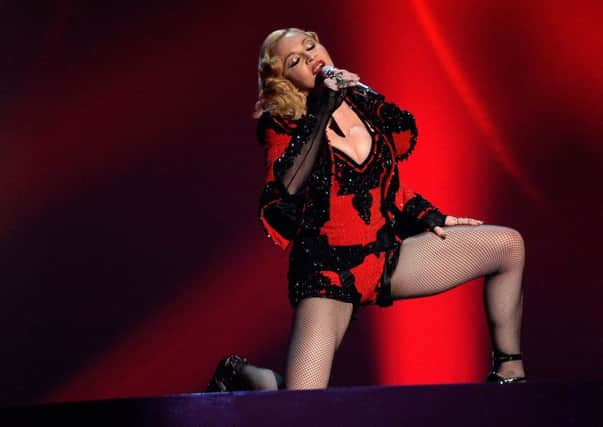Chitra Ramaswamy: We’re all getting old regardless


For 12 months leading up to my birthday this year I was convinced I was 36. I lugged my one-year-old son around feeling 36, failed to get enough sleep feeling 36, drank too much coffee feeling 36, fell over and broke my wrist feeling 36, and worried about my fertility levels… whilst feeling 36. Sometimes, when all of these things were happening at once, I felt about 106. Anyway, my birthday came round in March and I couldn’t believe I was about to turn 37. Life was doing that speeding up thing that people with children warn you about. The best of times were the fastest of times. No wonder I felt so old.
Then I opened the birthday card from my sister. “Happy 36th Birthday!” it announced. It slowly dawned on me. She was right. I had leapt right over a year and now it had been gifted back to me. A bonus year of life. It was the best present ever, the gift that would keep on giving for 12 months.
Advertisement
Hide AdAdvertisement
Hide AdYou’re as old as you feel, so the maxim goes. And a study out last week testing nearly a thousand 38-year-olds to determine their “biological age” suggests it may actually be true. People age at vastly different speeds. The 38-year-old who feels 25 may also, in fact, have the mind and body of a 25-year-old. The one who is old before their time may well be. The researchers used 18 markers to test the group, all of whom were born within the same year in the same New Zealand town, and included blood pressure, organ function, cholesterol levels, metabolism, and gum health. The results revealed that the biological ages of the 38-year-olds varied from 28 to 61. Not only that, the biologically older people looked older and fared worse on tasks such as walking up stairs and problem solving.
In some ways the findings are unremarkable. That we age differently seems as self-evident as saying we live differently (and indeed die differently). Of course we do. Each of us has our own individual make up: the complex matrix of genetics, social environment, experience, habits, psychological outlook, and random chance that makes us who we are. Why on earth would we expect to age in the same way, at the same time?
What’s interesting is that the study reminds us how little we talk about ageing as a mysterious and personal process. That is, ageing as something vital, intimate, unpredictable, difficult, and above all necessary that happens to each and every one of us. What we usually talk about when we talk about ageing is its oxymoronic (and moronic) opposite: anti-ageing. The tyranny of the wrinkle. The fight against time. The serums, creams, Botox, fillers, hair dyes, procedures, surgeries, diets, and fitness regimes that will if not reverse the inevitable, at least put it off for a while.
The age shaming: of Madonna for refusing to “act her age” or of Renee Zellweger for showing up on a red carpet at the age of 45 with a new face. (Women can’t win when it comes to ageing. Everything they do is “monstrous”.) And finally the “burden” of an ageing population: the cost to the NHS, the raising of the state pension age, the predictions that the number of people aged more than 80 in the UK will more than double in the next 25 years. The overall message? Don’t get old. No-one will thank you for it.
Of course we all want to drink the elixir of life. I religiously read articles about people, places, communities, or cultures who seem to know the secret not of avoiding ageing but of living long and well. The question, always, is how do they do it? Like the people of the Greek island of Ikaria who live an average of ten years longer than those in the rest of Europe and America and remain active well into their nineties. Or the southern Japanese Okinawa islands, which have the greatest proportion of centenarians in the world. The diets may vary between cultures but the answer is always the same and always crushingly obvious. Eat well, sleep well, stay active, see people, and be contented with your lot.
Meanwhile, the actual process of decay present in all living things marches on. We may not want to talk about what ageing really feels like at its best and worst but it happens nonetheless. Like Bette Davis said, “old age ain’t no place for sissies”. Which is why at the moment I’m feeling biologically much older than my age. I have chronic upper back, shoulder, and neck pain from more than a decade of typing thousands of words a week. I have eyes as dry as an 80-year-old’s (seriously, my optician told me) following laser treatment years ago. I’ve been getting migraines that make my head feel at least a century old. And that broken wrist I mentioned, which is the kind most often seen in pensioners (seriously, a doctor told me), still gives me trouble.
Yet there is another part of me which forever feels 27. This is the age I want to shout out whenever people ask me my age – 27 is how old I feel. I am always surprised to discover I am in my mid-thirties. I am never surprised at the thought of being 27. It’s a golden age I associate with, in no particular order, fun, silliness, being myself, drinking, smoking, success, listening to music, books, travel, love, health and Glasgow. Never mind that I now live in Edinburgh, go nowhere, and the last gig I went to was at the Usher Hall. In December. The fact is, I think 27 therefore I am. Will this change as I march – and occasionally limp – towards 40, 50, and beyond? Ask me when I’m 37…